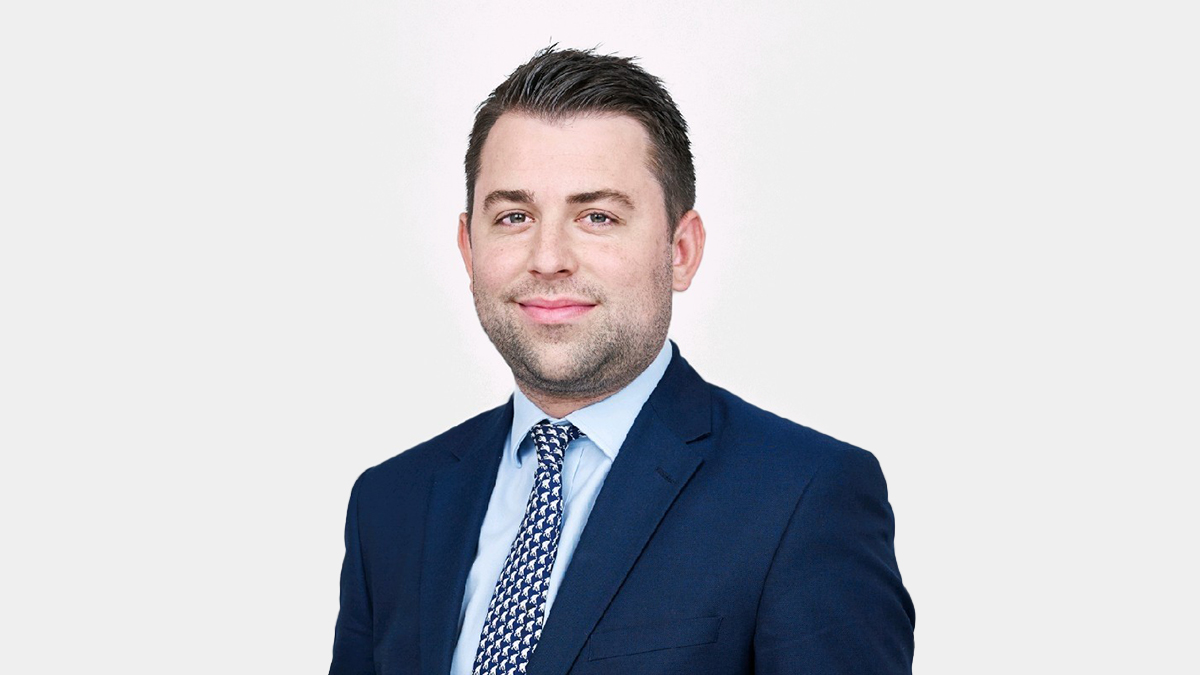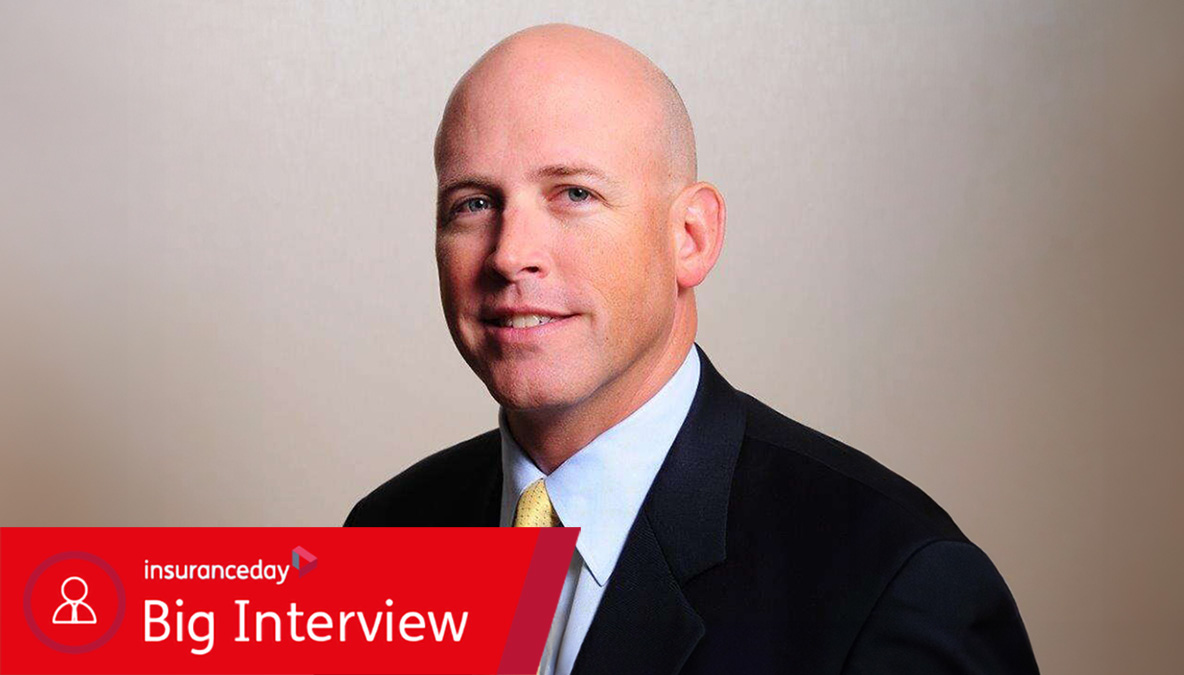Lloyd’s seeing ‘big uptick’ in oil and gas clients: IQUW
The Lime Street market is a known brand with consistent market-leading ability on quotes, products and paying claims and has strong S&P Global and AM Best credit ratings, making it attractive in uncertain times, David Message says
IQUW’s lead energy underwriter, David Message, discusses the outlook for the carrier’s upstream property/control of well portfolio
The energy insurance market is stable and has enjoyed continuity in capacity and appetite over the past few years, according to David Message (pictured), lead energy underwriter at property and specialty re/insurer IQUW.
That is true, he says, for everything from physical damage and control of well through to business interruption; and also for all the different types of company within the energy market, from drilling and construction through to operating and decommissioning. Matched with that is a tried-and-test portfolio of wordings clients can purchase.
“There has also been a fairly stable pricing environment on the upstream side, which has given security to oil and gas clients that are coming into the market to buy insurance. Overall, it’s a good place to be,” Message says in an interview with Insurance Day.
A lot of IQUW’s clients are going through changes with the transition to net zero. Their diversification efforts include looking to change how they power their offshore platforms using green energy, as opposed to power on board the platforms fed by hydrocarbons. There is also the introduction of more carbon capture within the existing fields and geothermal activities, for which interest is growing in North America and is something IQUW is looking to provide solutions for.
“Considering the geopolitical situation, it’s no surprise Lloyd’s continues to play a key role in being able to cater for the needs of those clients… Foreign markets have followed Lloyd’s lead for a long time but when times turn difficult, as they have done recently, there is an even greater flight to quality”
David Message
IQUW
Oil and gas companies are also expanding in terms of the introduction of new geographies, among them being Guyana, which the market and IQUW are “looking to assist”, Message says, in terms of the drilling, construction and operating environments.
Geothermal projects are mainly concentrated in a few geographies, including New Zealand, Indonesia and eastern Europe. The experience for insurers in the geothermal world has historically been difficult with regards to losses, Message points out, but underwriters can differentiate between the companies drilling and producing from those wells, and Lloyd’s has been very good at doing that.
“Now, we are seeing an increase in geothermal activity in North America, which we at IQUW are looking to provide solutions for because we have the right mix of underwriting and engineering expertise, including a sub-surface engineer skilled in drilling wells and production wells both for hydrocarbons and geothermal,” he says.
Now is a good time to insure geothermal wells, he adds, because of demand for cleaner power generation as an alternative to hydrocarbons.
London and Lloyd’s are “undoubtedly” the centre of upstream hydrocarbon insurance, Message stresses. There are some other hubs around the world – in the Middle East, Far East and Scandinavia – but most business comes to London and Lloyd’s plays a key part of that, both in providing capacity but also leadership in the oil and gas sector.
The importance of Lloyd’s and the London market is growing further, he continues, and there has been a big uptick in the number of clients and the amount of activity in the oil and gas sector. “Considering the geopolitical situation, it’s no surprise Lloyd’s continues to play a key role in being able to cater for the needs of those clients,” he says.
There are two big reasons for that. First of all, Lloyd’s is a known brand with consistent market-leading ability on quotes, products and paying claims. Second, it has strong S&P Global and AM Best credit ratings. Message says: “Foreign markets have followed Lloyd’s lead for a long time but when times turn difficult, as they have done recently, there is an even greater flight to quality.”
Frontier of developments
The oil and gas business is always at the frontier of developing new technologies, Message says, which includes being able to operate in certain water depths or in certain sub-surface structures.
“What we are seeing from a technological viewpoint is a continuation of companies wanting to exploit hydrocarbons either at a deeper water depth or on a deeper producing horizon. That includes vertical drilling to new deposits and, increasingly, horizontal drilling in existing fields,” he says.
Almost all oil- and gas-producing nations are looking to expand their upstream business, notably South America, North America, north and west Africa and Asia. In Europe, the only country not following this trend, Message highlights, is the UK.
IQUW does not have a policy against insuring new oil and gas projects and sees its role as supporting its existing customers on their energy transition journey.
“One of the things you mustn’t forget as an insurer is we are a service industry and that includes helping our clients to minimise their effects on the environment,” Message says. And that service is within the guard rails of Lloyd’s restrictions as well as the governance and regulatory control over clients, he adds.
An example he gives is IQUW’s support to insureds working in the Middle East, which are looking to covert power supply to their oil and gas platforms from diesel hydrocarbon fuels to renewable energy. That re-electrification effort includes insurance solutions for laying new power cables.
“There are very few clients we deal with that are looking to increase their carbon footprint,” Message stresses. “Whenever we speak to our clients, we raise this issue and so do they. The only thing that differs between clients is their pace of change.”
IQUW’s new phase
IQUW has entered the next phase of its energy offering, with three new appointments: senior energy underwriter, Chris Touhey; head of marine, energy and aviation claims, Darren Stewart; and Middle East and Africa engineer, Darryl Krobel. They have joined senior energy underwriter, Chris Jones, and energy underwriter, Teniola Tijani.
“We have three claims adjusters, four underwriters and an engineer, which is everything we need to be a lead market in energy,” Message says.
Above and beyond expertise, he adds, is the company’s focus on offering its brokers and clients a “quick and constructive response”.
“Not all risks are the same, but we always try to find solutions for our clients, whatever the risk they’re looking to get insured, and we’re working with our brokers and our clients to offer more leadership potential,” he adds.
An example of leadership he gives is offering multiple coverages to a client looking to renovate their oil and gas facilities. This bespoke package includes physical damage, loss of profits, construction, liabilities and cargo.
IQUW’s energy portfolio has a line size of $100m, up from $60m in 2023. It plans to increase this to $125m next year, subject to company and Lloyd’s approval. “It’s a trajectory we’ve been on for the past few years to cater for our clients’ needs, in that their values have been increasing in the world of inflation,” Message says. “A minimum of $100m is adequate to having leadership capabilities in the energy market,” he adds.
Next big thing
The biggest opportunity for the energy market is its constant growth despite the fall in the price of oil over the past few years from $80 a barrel to less than $60. “It’s too early to work out whether that will have a long-term effect on hydrocarbon production companies, but at the moment I don’t see their growth changing,” Message says.
The single biggest risk for energy clients, he says, is the prospect of a downturn in the global economy, particularly since many of them are national oil companies, meaning their profitability relies on their natural resources.
The Trump administration’s imposition of tariffs on countries across the world is a definite concern for the market.
Message says: “It depends where the client’s product is going. Some of what they produce will be refined domestically and the rest will go into the international market, depending on what contracts they have. I haven’t seen any immediate impact from tariffs in that sector, but it’s not to say there won’t be.”
Despite its importance to the world economy and its continued growth, the oil and gas sector can seem to be “under the radar” in re/insurance news coverage, which is increasingly focused on environmental, social and governance strategies and renewable energy projects.
“There hasn’t been a lot of press focus on hydrocarbons in recent years; however, we’ve seen growing activity in our clients’ businesses. The market – and IQUW – continues to meet these changing demands, servicing our clients on their energy transition journey.”



